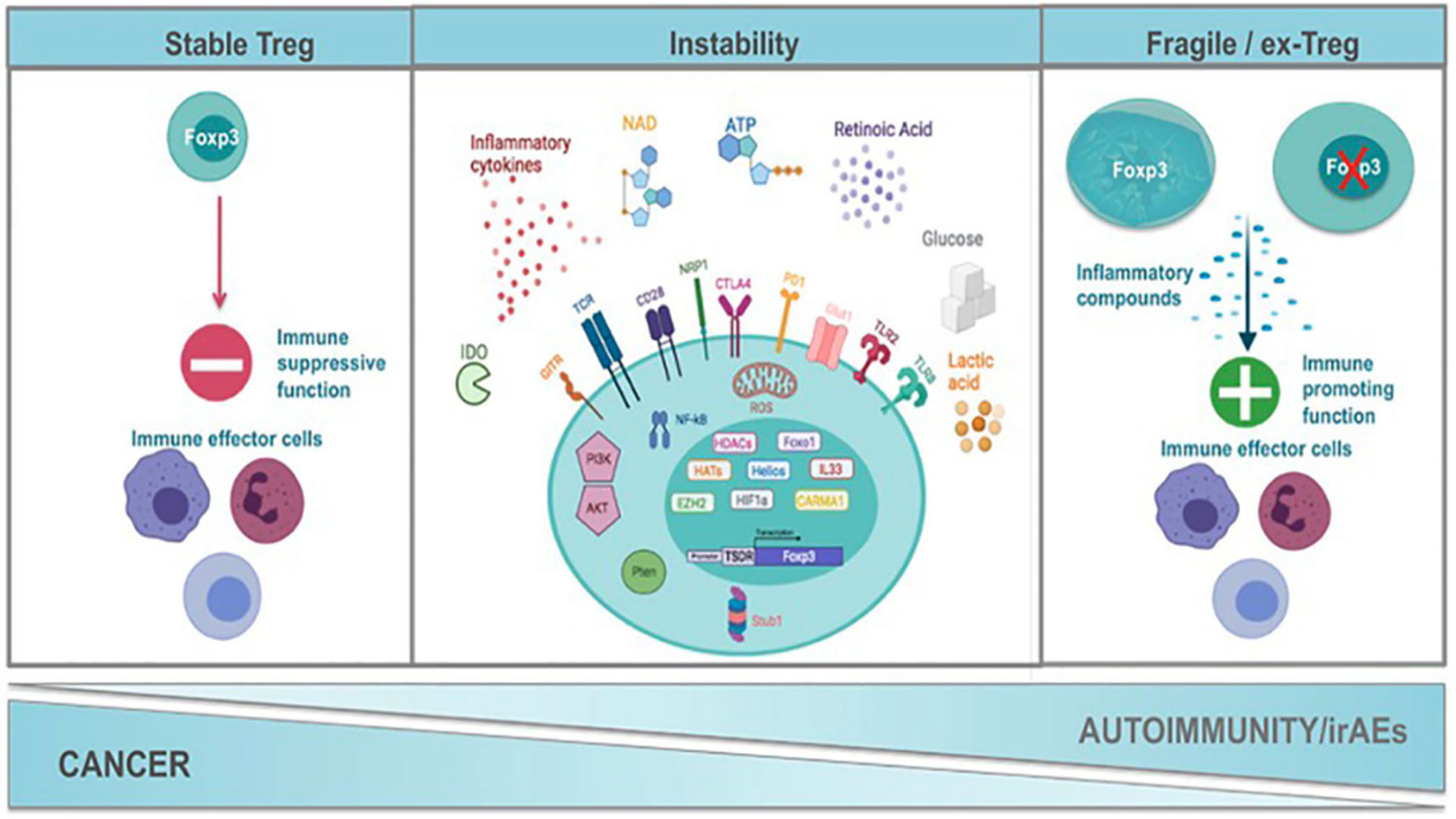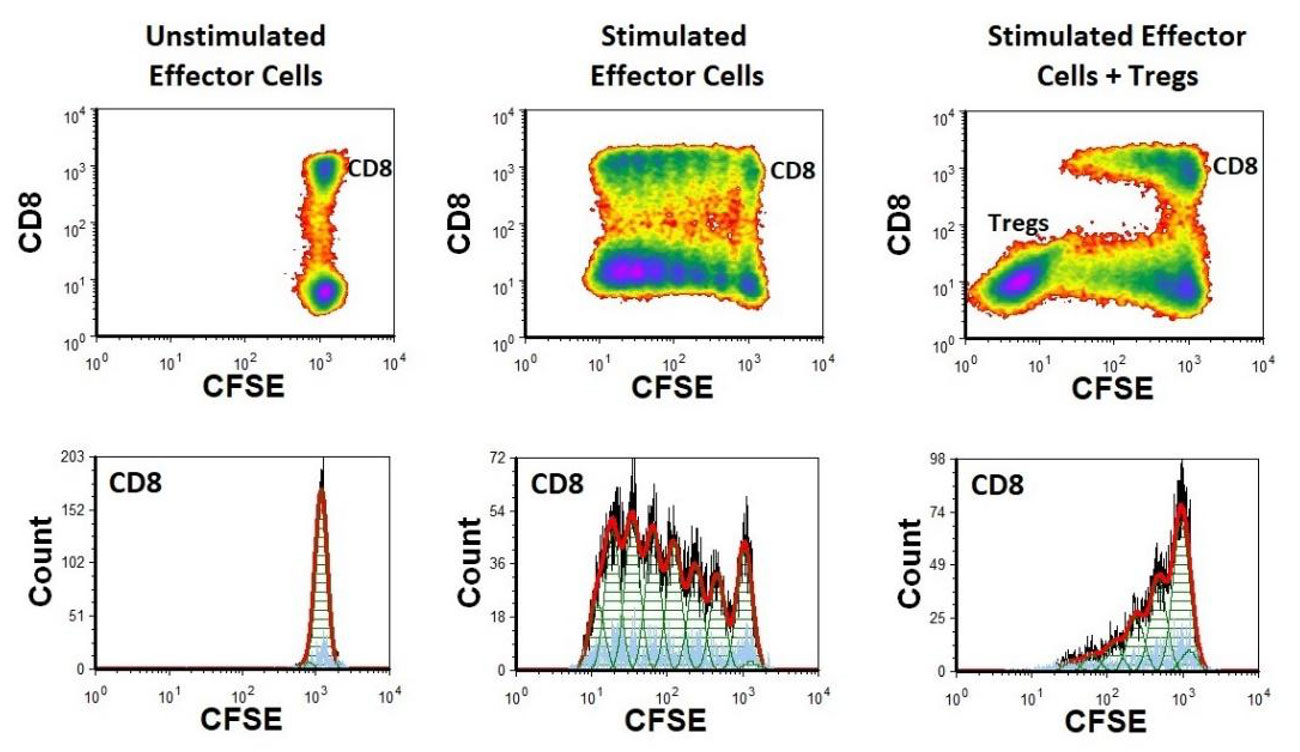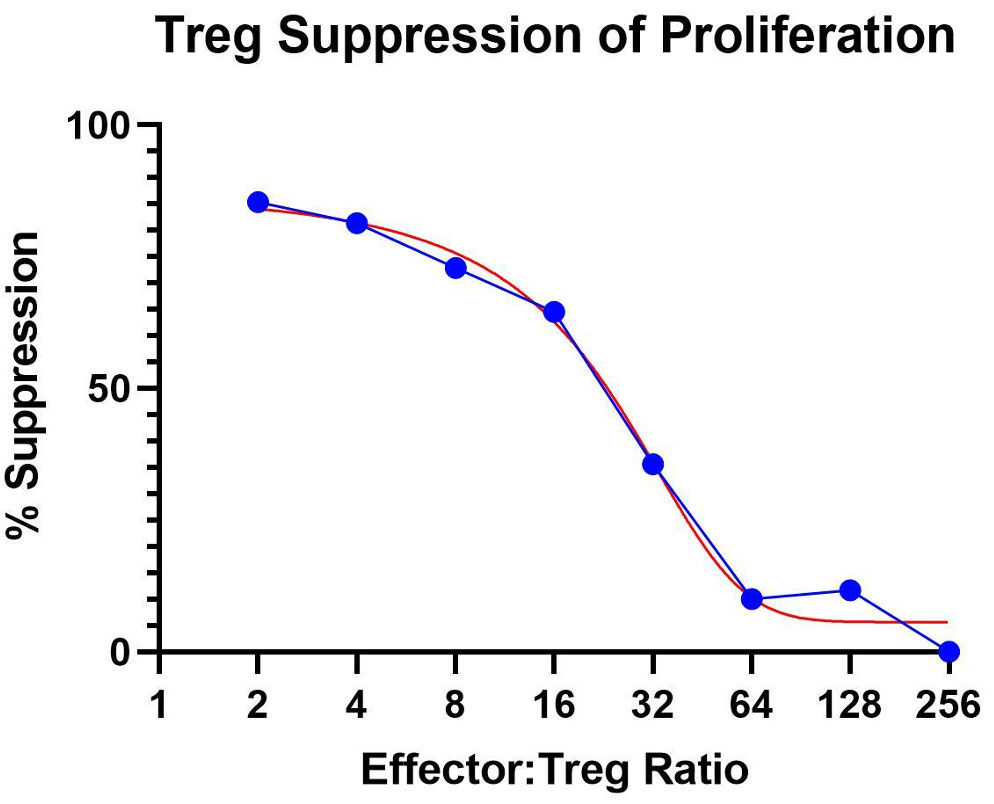The Increasing Relevance of Tregs in Immunology and Oncology
The study of regulatory T cells in autoimmunity, oncology, and infectious disease is still very much in its early days, though the applicable research findings are piling up.
Recent studies have linked the importance of Tregs to key areas of immunology:1
- Autoimmune Disease: Tregs have been shown to have reduced capacity to suppress T cell proliferation in patients with multiple sclerosis, type I diabetes, psoriasis, polyglandular syndrome type II, and myasthenia gravis.
- Allergic Disease: Several studies have implied that Tregs are critical to suppressing Th2 responses in healthy individuals to various allergens such as milk, nickel, and grass.
- Cancer: Increased Treg activity in cancer patients (including lung, pancreatic, breast, liver, and skin) may be associated with poor immune response to tumor antigens.
Other exciting literature has studied the plasticity of Tregs, including the loss of FOXP3 expression in “ex-Tregs” and “fragile Tregs.”2 This area of study has potential for the development of therapeutics that either de-stabilize or reinforce the stability of Tregs in autoimmunity and cancer applications.
Figure 1. From: Regulatory T Cells in Autoimmunity and Cancer: A Duplicitous Lifestyle2
How Induced Tregs Can Help
By creating Tregs in the lab, we can more cost-effectively develop larger batches for more applicability and usability in your immunology or oncology research projects.
Induced Tregs are ideal for running Treg suppression assays to help you understand if your drug candidate is able to successfully suppress or inhibit the immune response. If you need help with assay development, chat with one of our scientists today.
All of our induced Tregs are CD4+, CD25+, and CD127 low/negative. See the detailed Certificate of Analysis provided with every product.
More Information on Induced Treg Proliferation and Suppression
Ignyte Bio generates induced Tregs in culture from CD4+ T cells. These induced Tregs can inhibit T cell proliferation in vitro as demonstrated by the following figures.
Figure 2. Carboxyfluorescein succinimidyl ester (CFSE) is an effective means to monitor cell division. CFSE covalently labels long-lived intracellular molecules with the fluorescent dye, carboxyfluorescein. When a CFSE-labeled cell divides, its progeny retains half the number of carboxyfluorescein-tagged molecules and thus each cell division can be assessed by measuring the corresponding decrease in cell fluorescence via flow cytometry. The upper figures show CFSE-labelled effector cells (PBMC) counterstained with CD8. Unstimulated population (upper left figure) shows no cell division. Dilution of CSFE among both CD8+ and CD8- populations of the stimulated effector cells (upper middle figure) depicts cell proliferation/division. When Tregs are added to the culture (upper right figure), effector cell proliferation is suppressed. The lower figures show comparison of CFSE intensity in CD8+ populations from the respective unstimulated, stimulated, and Treg suppressed populations.
Figure 3. Directly after thawing, cryopreserved Tregs were plated in a round-bottom 96 well plate at numbers that represent effector to Treg ratios of 2, 4, 8, 16, 32, 64, 129, and 256. Effector cells (allogeneic PBMC) were labeled with CFSE prior to plating at 2 x 105 cells/well. Anti-CD3 antibody was added to a final concentration of 0.5 mg/mL. After 5 days of incubation in a 37°C, 5% CO2 incubator, the extent of proliferation (Division Index, DI) was analyzed by flow cytometry. % Suppression = 100- (DI in the presence of Treg/DI in the absence of Treg) x 100%. In this figure, % Suppression of Proliferation is plotted against effector to Treg ratios.
1 Taams, L.S., Palmer, D.B., Akbar, A.N., Robinson, D.S., Brown, Z. and Hawrylowicz, C.M. (2006). Regulatory T cells in human disease and their potential for therapeutic manipulation. Immunology, 118: 1-9. https://doi.org/10.1111/j.1365-2567.2006.02348.x
2 Hatzioannou, A., Boumpas, A., Papadopoulou, M., Papafragkos, I., Varveri, A., Alissafi, T., & Verginis, P. (2021). Regulatory T Cells in Autoimmunity and Cancer: A Duplicitous Lifestyle. Frontiers in Immunology, 12, 731947. https://doi.org/10.3389/fimmu.2021.731947



